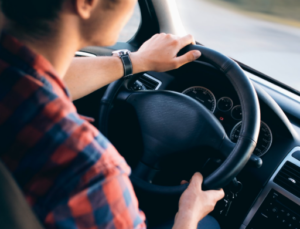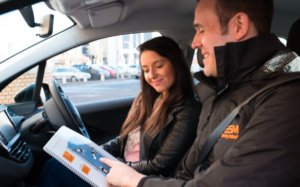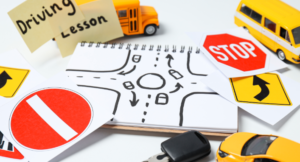How to Pass Your Driving Test First Time
Feeling nervous about your upcoming driving test? Wondering how to avoid common mistakes and impress your examiner? Want to pass on your first try and finally get that licence?
The driving test. It’s the final hurdle between you and the freedom of the open road (or at least the freedom to sit in Manchester traffic). Many learners worry about passing their test the first time. The nerves, the pressure, and the fear of making a silly mistake can all add up. But with the right preparation and mindset, you can ace your test and join the ranks of confident drivers in Manchester, Stockport, Oldham, Bolton, and beyond. At Astra Driving School, we’ve helped countless learners pass their driving test first time, and we know what works. Here’s how to give yourself the best possible chance.
Start With the Right Mindset
Passing your driving test isn’t just about knowing the Highway Code. It’s about keeping your cool, staying focused, and believing in yourself. Yes, that sounds a bit like something your gran might say, but it’s true.
- Confidence is key. If you believe you’re ready, you’ll drive with more certainty. But don’t confuse confidence with overconfidence. No one likes a show-off, especially not your driving examiner.
- Remember, nerves are normal. Even experienced drivers get sweaty palms sometimes. The trick is to channel that energy into alertness rather than panic.
- Visualisation helps. Picture yourself calmly handling roundabouts, parallel parking like a pro, and finishing the test with a smile (and not a grimace).
Example: Imagine you’re at a busy junction. Instead of thinking, “I’m going to stall and everyone will laugh at me,” think, “I’ve practised this. I know what to do. If I stall, I’ll just restart and carry on.” The examiner isn’t looking for perfection—they’re looking for safe, confident driving.
Know What to Expect on Test Day
Surprises are great for birthday parties, not so much for driving tests. Knowing what happens on test day can help you stay calm and focused.
- Your test will start with an eyesight check. If you can’t read a number plate from 20 metres, you’ll be heading home early. (Time to dig out those specs!)
- You’ll answer a couple of “show me, tell me” questions about your car. For example: “Show me how you’d check the headlights are working.” Pro tip: The answer isn’t, “Ask my mate Dave to look while I flick the switch.”
- The driving part lasts about 40 minutes. You’ll be tested on everything from junctions to manoeuvres. Yes, that includes reversing. No, you can’t just drive forwards everywhere forever.
- Independent driving is part of the test. You might follow road signs or a sat nav. Don’t worry if you go the wrong way; it’s not a geography test.
Example: Sarah from Oldham spent days worrying about the “show me, tell me” questions. On test day, she confidently demonstrated how to wash her windscreen. The examiner was impressed—mainly because she didn’t accidentally squirt herself in the face.
Master the Key Skills
The DVSA examiner wants to see safe, smooth, and legal driving. That’s it. You don’t need to drive like Lewis Hamilton or parallel park in a space the size of a shoebox. Focus on these essentials:
- Mirror, signal, manoeuvre. It’s the holy trinity of driving. Check your mirrors, signal your intentions, and only then make your move. Bonus points for not signalling left and then turning right.
- Speed control. Stick to the speed limit, but don’t crawl along at 10mph in a 30 zone. Examiners like confidence, not sloths.
- Observation. Always look around before moving off, changing lanes, or reversing. Pretend you’re auditioning for a role as an owl.
- Manoeuvres. Practise parking, reversing round a corner, and pulling up on the right. If you can do them with your instructor, you can do them on test day.
Example: Tom from Bolton was terrified of parallel parking. He practised in his driveway with two bins as makeshift cars. On test day, he nailed it in one go. The examiner even complimented his “bin technique.”
Prepare Like a Pro
Preparation is your secret weapon. The more you practise, the more natural everything will feel on test day.
- Book lessons with a DVSA-approved instructor who knows the test routes. (At Astra Driving School, we know all the local hotspots, including that awkward mini-roundabout near the chippy.)
- Practise at different times of day. Manchester roads at rush hour are a different beast than on a Sunday morning. Get comfortable with both.
- Take mock tests. They’re not just for fun (though you can pretend you’re on TV’s “Test Drive” if it helps). Mocks highlight areas you need to work on.
- Revise the theory. The practical test is important, but so is knowing why you shouldn’t drive the wrong way up a one-way street.
Example: Emily from Stockport took a mock test the week before her real one. She made a few mistakes, but her instructor gave her clear feedback. On the big day, she avoided those errors and passed with flying colours.
Stay Calm and Carry On
Test day nerves are real. But you can manage them. Here’s how:
- Get a good night’s sleep. No one drives well after binge-watching box sets until 3am.
- Eat something before your test. You don’t want your stomach growling louder than your engine.
- Arrive early. Rushing will only make you more anxious. Plus, you’ll have time for a last-minute pep talk (or a quick trip to the loo).
- Breathe. If you make a mistake, don’t panic. Minor faults are normal. The examiner is looking at your overall driving, not one small slip.
Example: Jake from Manchester was so nervous he nearly wore his lucky socks inside out. He took a few deep breaths before starting, focused on the road, and passed on his first try. The socks may or may not have helped.
What If Things Don’t Go to Plan?
Even if things don’t go perfectly during your test, don’t worry. Many people don’t pass on their first attempt, and that’s okay. The key is to learn from your mistakes and try again. Remember, passing the test is about showing safe, confident driving—not perfection.
- If you don’t pass, get feedback from your examiner. They’ll highlight what you need to work on.
- Take some more lessons, focusing on your weak points.
- Don’t give up. The road to passing may have a few bumps, but with determination, you’ll get there.
Example: Mark from Stockport didn’t pass his first time. He took a few more lessons, worked on his parallel parking, and passed with flying colours on his second attempt. He was over the moon when he got his licence, and so was his instructor.






